Mission & History
OUR MISSION
Based in the City of Compton, CLI’s mission is to increase legal service delivery in underserved communities. The organization, founded in 2005, realizes the challenges that individuals face in finding quality, ethical and affordable attorneys. CLI provides access to critical legal resources primarily to the communities of Compton, the South Los Angeles, and Southeast Los Angeles County. In January 2009, CLI launched the Community Lawyers Access Center (CLAC). Since its launch, CLAC has provided legal information and services to more than 4,600 individuals and conducted more than 1,300 legal clinics, workshops, and information sessions. CLAC operates primarily with the support of volunteer attorneys, students, and paralegals to educate individuals about their legal rights and responsibilities.
OUR VISION
Reducing Barriers to Justice!
Our History
On Wednesday, January 21, 2026 the Community Lawyers, Inc. Board of Directors voted to adopt a new vision statement. "Reducing barriers to Justice". The vision statement was written and proposed by staff member Cameron Parker, Community Lawyers' Program Director.
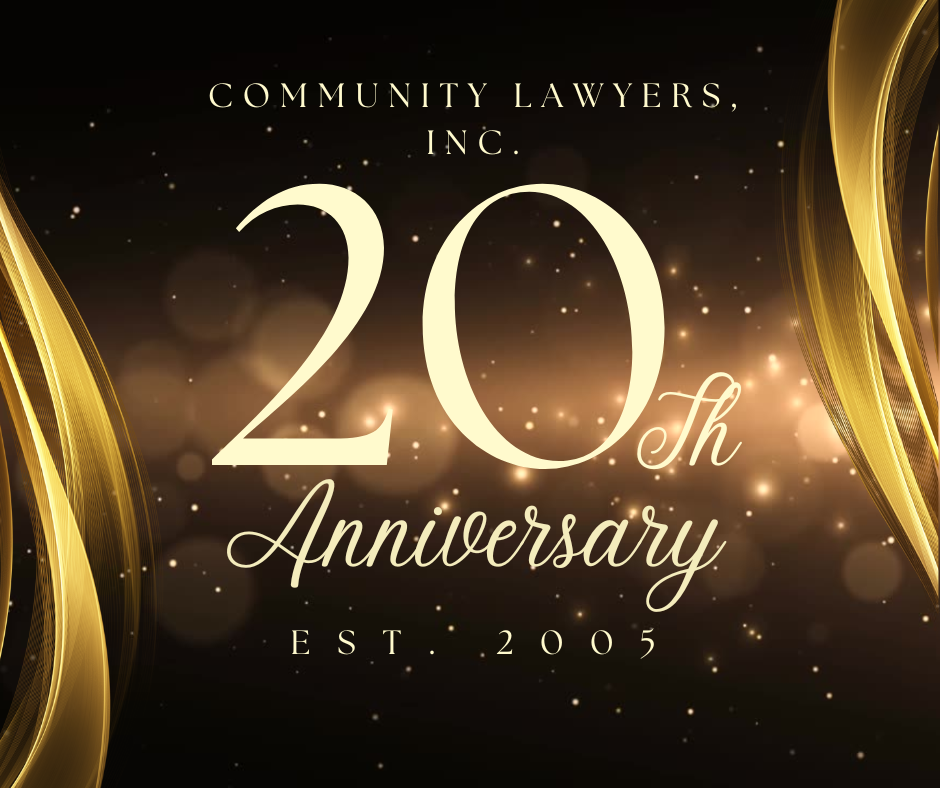
1. What was your personal inspiration behind founding Community Lawyers, Inc.?
I established a law office in Compton in 2002. In addition to seeing a great need for legal services for individuals that didn't qualify for legal aid and didn't have enough money to hire lawyers at market rates, I also saw a need for creating a pipeline of attorneys who would serve the population. As originally conceived, the idea for Community Lawyers was more an idea to build infrastructure in a community, than simply a legal aid organization. There was a dual mission: (1) train and support new legal professionals (2) to provide legal services for those who are underserved. I was trying to create what I, as a solo practitioner serving an underserved population and a first-generation lawyer, needed- community and support.
2. Reflecting on CLI’s 20th anniversary, has CLI aligned with your initial vision?
Twenty years later, I recognize that CLI has built an important network of support, not only for the local community, but for many legal professionals that have been involved. CLI has been a place were many paralegals, and legal assistants have been trained, where many pre-law students have determined whether law as their career path, a network for lawyers and law students to develop community through their dedicated pro bono services, their participation in summer internship programs, and a place that marries the familiar community approach to problem-solving for individuals who are being introduced to the legal profession. Today, the organization does much more legal service provision than pipeline development - that aspect I transitioned back to the profession as law firm incubators. I see the Los Angeles Incubator Consortium as a spin-off of the initial vision of Community Lawyers.
3. Looking back, what are some of the proudest moments for the organization?
As a grassroots organization that hasn't neatly fit into the legal profession's existing landscape, survival is our proudest moment. Nothing CLI has done has come easily. Many, many people have sacrificed time and income to build the organization. As the founder, the 3 proudest moments have been that: (1) CLI survived my initial transition and has continued to draw people who share a vision to create more legal resources in Southeast LA County; (2) the organization not just surviving the pandemic and other economic downturns, but growing after each set back; and (3) reaching 20 years! I am so happy and proud to be part of this community.
4. Can you share a time when a CLI staff member (whether director, attorney, staff, or intern) had an impact on you and/or CLI?
Staff have always been the key to the organization. There have been many because most of our staff have started part-time and that is not sustainable long-term. Many have left for full-time positions or because they burned out since for many years, there was only one part-time staff member. Every single person who has worked there has made a positive contribution, but these are the staff members that I have seen as key to the direction and sustainability of the organization:
The first one, Sarah Rafael Garcia, began as an independent contractor for a few months to help launch it. Sarah and I set up the space that launched what we called the Community Legal Access Center - the current office space on Compton Boulevard. She helped secure computer donations, build cubicles, develop marketing materials, and oversee the first evening clinics that provided pro bono legal services. Sarah Rafael Garcia is today a well-known local writer, artist, mentor, and community leader who founded Barrio Writers, Libro Mobile, Cuentos Mobile, and so many other projects she is constantly creating that bridge her talents with the needs in the community. https://
Belen Bernal has been instrumental, as an executive director and a board member. She was able to do a great deal with a small budget. One of the examples of her contributions was her ability to identify grants that provided a training opportunity for local community members. She secured a grant that allowed us to hire 3 full-time staff for a year in the early days of the organization. It was a lot of work to train and support that staff but together they did a lot to build up the organization. She did all this while serving as an elected official in South Gate. Belen went on to receive an MBA is currently the executive director of Nature for All - a LA area nonprofit focused on engaging diverse communities in preservation and enjoyment of natural space. https://lanatureforall.org/
Judith Sandoval was program coordinator for CLI for many years. She was once an intern in my law office and is a local resident of Compton. A Stanford University graduate, Judith was part of CLI at a time when it was not clear that the organization would survive. I see her as instrumental in the transition of the organization as something more than merely a founder's project. Judith left her PT position at CLI to work at USC full-time and is now the director of their Volunteer Center - a project that coordinates and promotes volunteer opportunities for USC students both on campus and outside.
https://campusactivities.usc.
Under Rosa Hirji's leadership, CLI has matured. Rosa has devoted more than 10 years to the organization, originally as a board member, but now as its part-time executive director. She took charge of the organization after the pandemic when the organization was struggling with resources and management. In 3 years, Rosa has changed the trajectory of the organization from one that was struggling to one that is on the path to chart continued growth for another 20 years, thanks to the great team she has assembled. Rosa has professionalized CLI much more and while that has changed its direction a bit more away from the original vision, it has clearly been the best path to survival and growth. Rosa is a successful education attorney that continues to maintain a law practice while devoting significant time to leading the talented staff at CLI. https://lawyer4children.com/
5. Looking ahead to the future, what visions or hopes do you have for CLI?
As I look to CLI's future, I hope for continued growth, economic stability, a strong governance structure, and continued mission-driving work. It would be great to see how we can partner with local cities and law schools to do our work. I would also love to a partnership with the Law School Incubator Consortium, hope to continue building a strong board, and to do more donor and alumni engagement work. Ultimately, the grand prize for CLI is to hire a full-time executive director and staff. I believe that will happen within the next 5 years.
6. Considering the current moment of uncertainty, what advice would you give to CLI, nonprofit organizations, and/or community members?
Community infrastructure developed for and by community is critical and necessary in these times. It is important to do the work you know is needed even when that path forward is not clear. If the work has merit, there will be others who will help realize and expand the vision. Working in community makes the difficult patches easier to navigate. We all have incredible resources in our personal networks, we need to learn how to tap into them to build together.
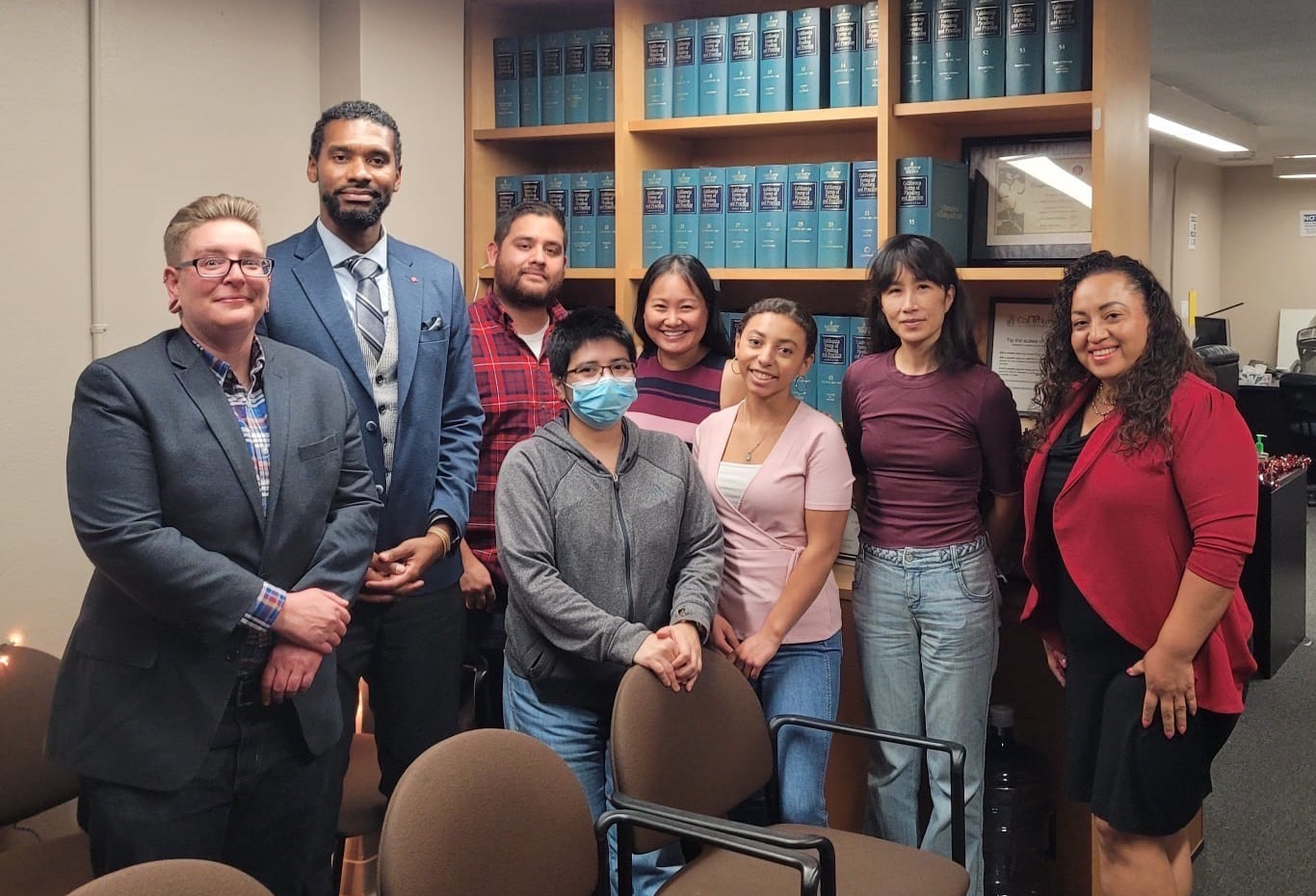
-
CLI held two outdoor Saturday Naturalization Clinics in the CLI parking lot
-
CLI receives a $150,000 Capacity Strengthening Grant from the LA County Office of Immigrant Affairs (OIA) and the Center for Nonprofit Management (CNM)
-
CLI holds its first hybrid Winter Celebration Virtual Fundraiser
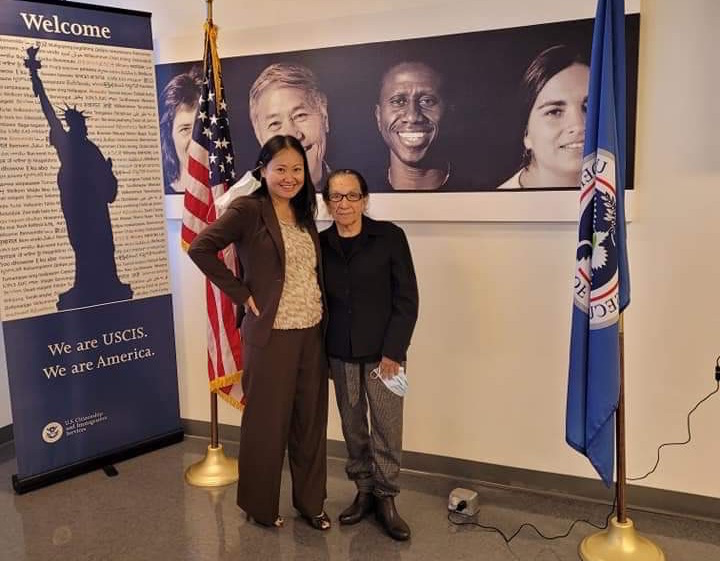
-
Since the inception of CLI in 2005, CLI has assisted 9,600 community members
-
CLI has completed 373 DACA applications
-
Volunteer attorney hours reaches over 6,500
-
CLI receives the California State Bar IOLTA/EAF grant
-
CLI hires Miho Murai, Esq. as the permanent Executive Director
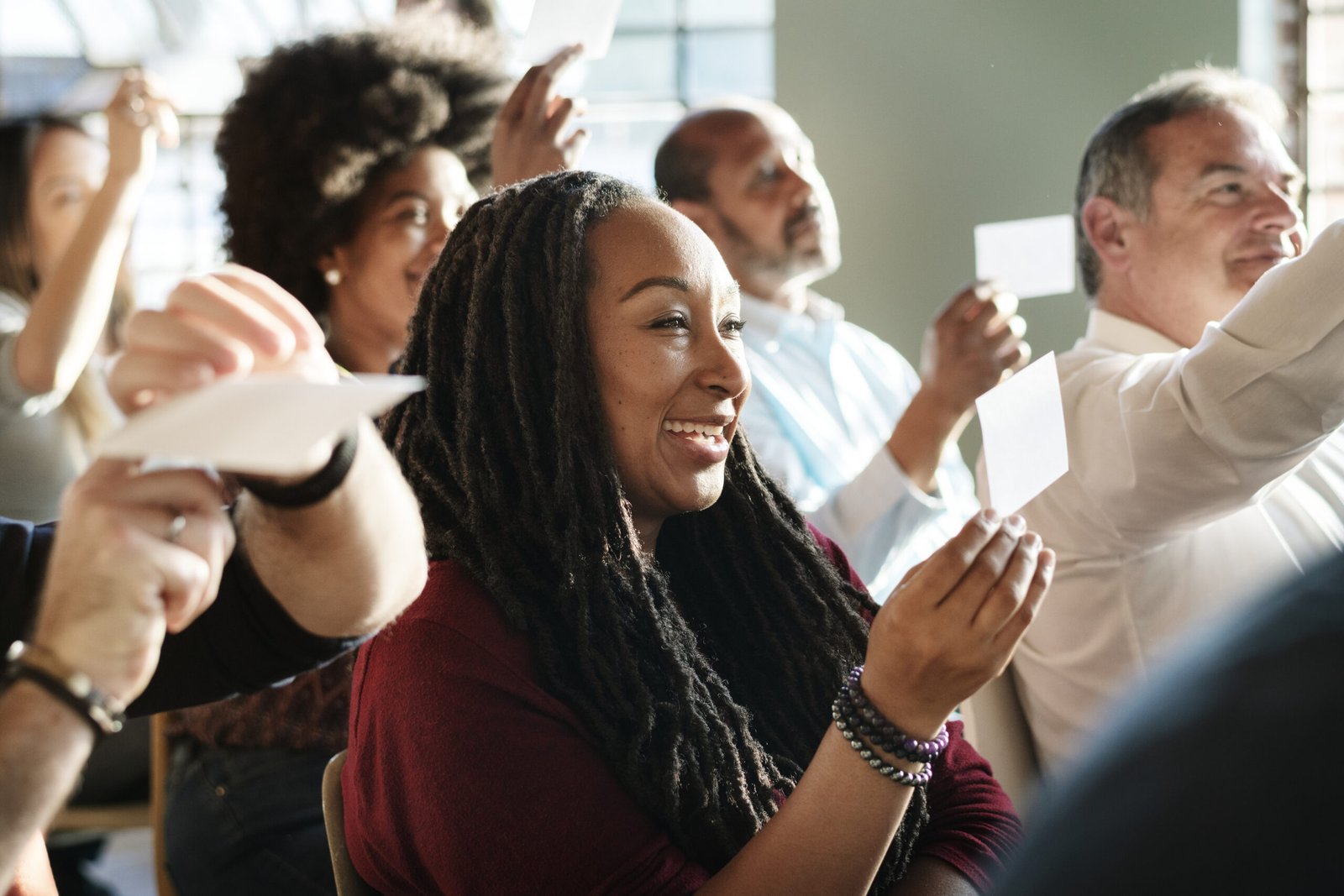
- CLI reaches 500 citizen applications
- Reaches 4,000 volunteer attorney hours
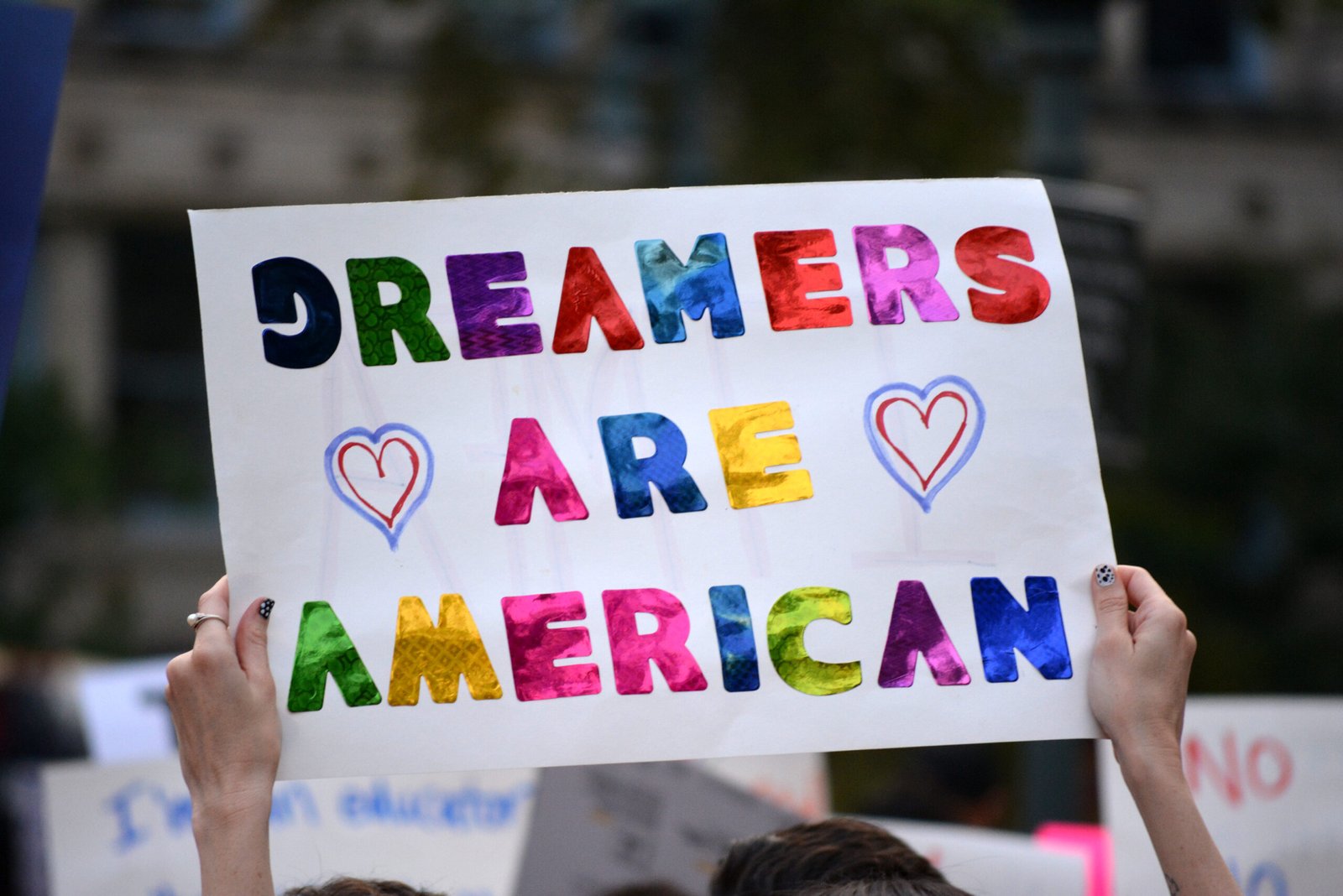
- CLI receives the NALEO Grant
- 600 Family Law Consultations were completed by CLI
- CLI beings processes DACA applications

- CLI Launches the annual Justice Jam Event
- Reaches 1,500 volunteer attorney hours

Luz Herrera, social justice lawyer and UCLA Law Professor, was born in Tijuana to Mexican parents and grew up in the Latino neighborhoods of Los Angeles. After graduating from Harvard Law, she ran a solo law practice in working class Compton for years. She was the only full-time Spanish speaking lawyer in a city of over 50,000 Latino residents. She says she learned to think like a lawyer at Harvard but learned how to be a lawyer in Compton. After seven years of practice in Compton she became a law school professor full-time. Her academic work is focused on connecting law students with low income people and communities and helping prepare law students to be independent community lawyers. She also established and continues to help guide Community Lawyers, Inc., a non-profit organization providing low cost legal help for poor and working people in Compton.
